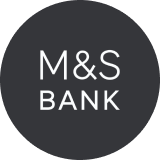Guide to secured and unsecured loans
In this guide we look at secured vs unsecured loans and their differences.
It’s likely that you’ll come across a lot of different methods for borrowing money during your search for a loan.
With so many lenders, loans, and deals out there, it can be hard to know which product is right for you.
However, before you can start comparing lenders, you’ll need to answer an important question: will your loan be secured or unsecured?
Today, we’ll be exploring the key differences between these two types of loan.
If those terms sound like a new language right now, don’t worry – we’re here to unpack them and help you make informed decisions about borrowing the cash you need.
What’s the difference between a secured and unsecured loan?
Given that all loans enable you to borrow some cash, you may be thinking, “aren’t they all the same?” Well, not quite!
The main difference between secured and unsecured loans is the collateral required to get your application over the line.
A secured loan is always backed up by collateral.
This can be any valuable item you own but is usually a house or high-value vehicle.
You should think of collateral as a safety net for the lender.
This is due to the fact that they can seize the collateral you put up to recoup their losses if you can’t repay the loan they give you.
On the other hand, an unsecured loan never requires you to offer collateral. Yep, you heard it right – no collateral needed here!
Instead, lenders look at your creditworthiness, the stability of your income, and other factors to determine whether it’s sensible to approve your loan application.
Since there’s no collateral to rely on under this arrangement, unsecured loans represent a higher risk for lenders. Unfortunately, this often equates to higher interest rates for you as a borrower.
So, in a nutshell, a secured loan affords a high degree of security for the lender, owing to the collateral that forms part of the loan agreement.
However, an unsecured loan relies on your responsible financial behaviour and creditworthiness.
What should I consider before taking out a loan?
Repaying borrowed money is a big financial commitment.
For this reason, it’s always wise to consider a few factors before deciding between a secured and an unsecured loan.
The importance of credit score
A great credit score will help you on your way to getting the best deals for any borrowing.
This tends to be the same across the board for all loans.
However, whilst your credit score is important for obtaining a secured loan, it’s even more essential for securing the best rates on an unsecured loan.
If your credit score leaves something to be desired, you might not be accepted straight away if you apply for some unsecured loans.
With that being said, if you can offer up a valuable asset as security, you may have an easier time getting your hands on a secured loan.
The sum you can borrow
You’ll usually be able to borrow more with a secured loan than an unsecured loan.
This is because lenders are equipped with the security of your collateral should you default, ultimately meaning they’ll feel confident to take more risk.
If you run into trouble and can’t repay your loan, the lender is allowed to take the asset you’ve put up as security to cover the losses they incur.
Of course, this eventuality doesn’t happen with unsecured loans.
But that doesn’t mean they’re risk-free. Your credit score will still be negatively affected, and you’ll still be legally required to repay your loan at some point, so you’re not off-the-hook.
Security
A secured loan will need to be secured against something you already own. This item is normally your home, but can be a car or another valuable possession.
By taking out an unsecured loan, you can avoid the risk of your property immediately being seized if you fall behind on the repayment schedule that’s drawn up for you.
Interest rates
Whilst your individual circumstances are always taken into account by a lender you approach for a loan, you’ll often find you can get a lower interest rate on a secured loan compared to an unsecured loan of an equal sum.
Again, this boils down to the fact that you’re incorporating an asset as security into the loan arrangement, so there’s a lower risk factor for the lender you’re working with.
What are the disadvantages of secured and unsecured loans?
| Disadvantages | Secured Loans | Unsecured Loans |
| The involvement of collateral | If you fail to repay, the collateral can legally be seized | The lack of collateral involved in this arrangement means there’s a higher risk for the lender, leading to higher interest rates for you |
| Limited borrowing options | The requirement of collateral limits your eligibility if you don’t have access to a high-value asset | Strict eligibility criteria may exclude those with a low credit score or CCJs |
| Lengthy approval times | The verification of collateral may lengthen the approval time | Processing time can be longer due to the lender’s need to carry out a risk assessment on you |
| Asset vulnerability | You run the risk of losing valuable assets if you’re unable to repay, no matter the reason | No assets directly at risk, but your credit score may be badly affected if you run into problems with paying |
| Lower loan amounts | The loan amount is tied to the collateral value, meaning that if you’ve got low equity in your home, you may only be eligible for a small loan amount | Loan amounts offered may be smaller due to the risk posed to the lender |
What are the alternatives to secured and unsecured loans?
The world of borrowing money is vast, and loans aren’t the only option available if you need to access some additional funds.
- If you need to borrow a big chunk of cash and already own a home, it may be worth considering a remortgage to free up some of your existing assets to spend. Mortgage rates tend to be considerably lower than those applied to other types of secured loans.
- Have you considered looking into guarantor loans? They’re a type of secured loan which allow a trusted friend or family member to act as a guarantor on your debt.Under this arrangement, they must step in to repay your remaining loan sum if you default. However, if you have a low credit score and are sure you can make timely repayments to the lender, this option may be worth considering.
- A low interest credit card could help you solve your financial woes if you only need a small sum of money to tide you over. Many lenders offer 0% interest credit cards for promotional periods, or credit products which carry consistently low rates of interest for an allotted time.
How to get the best deal on a loan
There are many tools out there which are designed to help you get a great deal on a loan, be it secured or unsecured.
However, despite all the assistance at your disposal, there are a few important steps to take on your own to make the most of the loans market.
If you’ve decided that a loan is the best borrowing route for you, then your first port of call should be your mortgage lender, if you have one.
To reward good financial behaviour, some mortgage lenders offer exclusive loan deals to those who have a stellar record of repaying their mortgage.
If you think this could be you, get in touch with your lender before looking elsewhere.
The same applies to banks in some cases. If you have a select or current account with a high street bank, they may extend special loan deals to existing customers which carry attractive rates.
Once you’ve exhausted step one, you could move on to comparison websites: you never know when you might be able to snag a better deal with an alternative lender!
By narrowing down the specifications for your ideal loan, comparison websites can provide you with information on a vast number of potential lenders.
However, it’s important to bear in mind that comparison sites don’t always show a comprehensive range of offers on loans. It’s a good idea to use them as a springboard to start your research, as you can then enquire with the lenders you find directly.
In addition to researching the cost of your potential borrowing, be sure to compare the terms and conditions of each loan offer.
In addition, make sure you check the details of what could happen if you’re unable to repay in accordance with a schedule.
Finally, ensure that you check whether loan comparisons will show up on your credit file.
Some lenders on the market will carry out a hard credit check on you before providing a quote for a loan. To a future lender, this can look like you’ve actually applied for the loan you’re researching.
If you are seen to have applied numerous times, this can have a negative impact on your credit rating.
To avoid this eventuality, ask the lender if they offer an eligibility checker function instead – what’s called a soft credit check.
This will not appear on your credit file and can be a useful piece of information to have at hand when you are shopping around for loans but not quite ready to apply.
Retaining a good credit score is the number one way to secure the best deals, so you’d be wise to preserve those points!
How can I improve my credit score?
Ah, the credit score! It’s akin to a financial report card and can have a big impact on your borrowing power with lenders.
Want to improve your score to unlock bigger and better loan options? Of course, you do!
- Prompt bill payments are the golden ticket to a healthier credit score.To help keep yourself on track, you could set up automatic payments or reminders to ensure you never miss a due date. Trust us, it’s worth the effort in the long run!
- Credit utilisation indicates the percentage of your available credit that you’re currently using. As a rule of thumb, you should aim to keep it below 30% as this shows that you’re not overly reliant on credit.
- As well as the quality, the length of your credit history matters to lenders. The longer you’ve had credit accounts in good order, the better it looks on your credit report if a lender checks you out as a potential borrower. So, be sure to think twice before closing old credit cards. Having them open and unused can actually work in your favour!
- Having a good mix of credit types, such as credit cards, personal loans, and a mortgage, for example, shows that you’re able to handle different financial responsibilities at the same time. Just be careful to manage them all sensibly!
- Opening multiple credit accounts within a short time span can raise eyebrows where a lender’s concerned. Each application requires a hard inquiry into your credit record which may lower your score, albeit temporarily. So, be very selective in your applications and only hit send on applying for credit when you think you really need it.
- Regularly check your credit file for any errors or suspected fraudulent activity. If you identify anything suspicious, it’s wise to report it immediately. Keeping tabs on your credit health is an essential action to maintain a solid score.
Improving your credit score can take time and consistent effort. But over time buidling a better credit score is very much possible.



